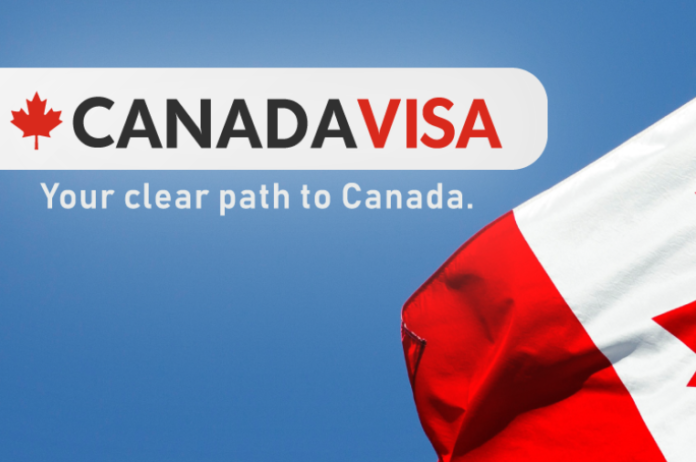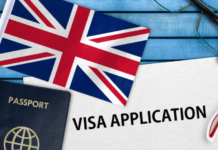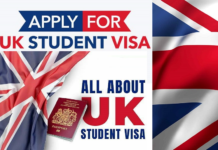For many, Canada beckons with its stunning landscapes, vibrant cities, and welcoming spirit. But how do you turn that dream of becoming a Canadian resident into reality? Visa sponsorship for Immigrants in Canada might be your golden ticket!
In this blog, we’ll delve into the exciting world of visa sponsorship for Immigrants in Canada, equipping you with the knowledge to navigate this path to a new life.
What is Visa Sponsorship in Canada?
Visa sponsorship in Canada is essentially a collaborative effort between you (the sponsored immigrant) and your sponsor (a Canadian citizen or permanent resident). Here’s how it works:
- The Sponsor: A Canadian citizen or permanent resident who agrees to provide financial support and guidance to the sponsored immigrant for a set period, typically three to five years. This demonstrates the sponsor’s commitment to the immigrant’s successful integration into Canadian society.
- The Sponsored Immigrant: The individual seeking permanent residence in Canada. They must meet specific eligibility requirements based on the chosen sponsorship program (family or economic).
Types of Sponsorship Programs:
Canada offers various sponsorship programs catering to different situations:
- Family Sponsorship: Designed for reuniting families. Canadian citizens and permanent residents can sponsor their spouse, common-law partner, dependent children, parents, and even grandparents for permanent residence.
- Provincial Nominee Programs (PNPs): Many provinces offer PNPs with employer sponsorship options. These programs target skilled workers in specific professions to address regional labor market needs.
- Canadian Experience Class (CEC): Open to skilled workers with Canadian work experience who may have obtained that experience through a previous employer sponsorship arrangement.
Understanding the Sponsor’s Role: Beyond Financial Backing
The sponsor’s responsibility goes beyond just financial support. They are expected to:
- Provide for the basic needs of the sponsored immigrant, including food, shelter, and clothing.
- Assist with settling in Canada, including finding housing, accessing healthcare, and enrolling children in school.
- Help the sponsored immigrant integrate into Canadian society by familiarizing them with customs, traditions, and the job market.
The Importance of Financial Assessment:
Immigration, Refugees and Citizenship Canada (IRCC) assesses the sponsor’s financial ability to support the sponsored immigrant. This ensures that the sponsor can meet their obligations and that the immigrant won’t become a burden on Canada’s social services.
Sponsorship is a significant commitment. Both the sponsor and the sponsored immigrant should enter this agreement with clear expectations and a willingness to work together for a successful outcome.
By understanding the different aspects of visa sponsorship in Canada, you can determine if this path aligns with your immigration goals and choose the program that best suits your situation.
Who is Eligible for Visa Sponsorship for Immigrants in Canada?
Visa sponsorship in Canada opens doors for many, but eligibility criteria vary depending on the chosen program. Here’s a breakdown of who can qualify as a sponsor and who can be sponsored:
Who Can Be a Sponsor?
To sponsor an immigrant in Canada, you must meet the following criteria:
- Canadian Citizen or Permanent Resident: This is the foundation. You must hold a valid Canadian citizenship or permanent residency status.
- Age of Majority: You must be at least 18 years old.
- Financial Stability: You need to demonstrate sufficient financial resources to support yourself and the sponsored immigrant(s). IRCC uses a benchmark called the Minimum Necessary Income (MNI) to assess your financial capability. This amount varies depending on the size of your family unit.
- Residency Commitment: For most family sponsorship programs, you must be living in Canada and intend to remain here for at least three years after the sponsored immigrant receives permanent residence.
Who Can Be Sponsored?
The eligibility of the sponsored immigrant depends on the specific sponsorship program:
Family Sponsorship:
- Spouse or Common-Law Partner: You can sponsor your spouse or common-law partner, provided you have a genuine and subsisting relationship.
- Dependent Children: You can sponsor your dependent children, including biological, adopted, or stepchildren under the age of 19 (or 22 if they meet specific criteria for continued financial dependence).
- Parents and Grandparents: Under the Parents and Grandparents Sponsorship Program (PGP), you can sponsor your parents and grandparents, but be prepared for longer processing times due to high demand.
Economic Sponsorship:
- Skilled Workers: Certain Provincial Nominee Programs (PNPs) allow employers to sponsor skilled foreign workers with specific skills and experience needed in their province.
- Canadian Experience Class (CEC): Open to skilled workers who have gained valuable Canadian work experience, potentially through a previous employer sponsorship arrangement.
Additional Considerations:
- Criminal and Immigration History: Both the sponsor and the sponsored immigrant must pass criminal and immigration inadmissibility checks.
- Medical Requirements: Sponsored immigrants may need to undergo a medical examination to ensure they meet Canada’s public health standards.
This is a general overview. Specific eligibility requirements may vary depending on the program. Always refer to the official IRCC website https://www.canada.ca/en/immigration-refugees-citizenship/services/immigrate-canada.html for the latest details and program-specific information.
By understanding the eligibility requirements, you can determine if visa sponsorship is a viable option for your immigration journey to Canada.
Application Process for Visa Sponsorship for Immigrants in Canada
Visa sponsorship for Immigrants in Canada offers a promising path to permanent residence, but navigating the application process can seem daunting. Fear not! This guide will break down the steps involved, empowering you to approach the process with confidence.
Step 1: Chart Your Course – Choose the Right Program
The first step is to identify the sponsorship program that best aligns with your situation. Here’s a quick refresher:
- Family Sponsorship: Ideal for reuniting with family members like spouses, children, parents, and grandparents.
- Provincial Nominee Programs (PNPs): Focuses on skilled workers with specific in-demand professions needed by a particular province. Often involves employer sponsorship.
- Canadian Experience Class (CEC): Open to skilled workers who gained valuable Canadian work experience, potentially through a previous employer sponsorship.
Step 2: Assemble Your Arsenal – Gather Required Documents
Each program has its own documentation requirements. Generally, you’ll need:
- Sponsor Documents: Proof of Canadian citizenship/permanent residency status, financial documents (tax returns, employment letters), and a signed sponsorship agreement.
- Sponsored Immigrant Documents: Birth certificates, passports, marriage certificates (if applicable), medical exam results, and police certificates from countries of residence.
Tip: Refer to the official IRCC program guides and checklists for the specific program you’re applying under.
Step 3: Submit Your Application Online – Embark on the Digital Journey
Most sponsorship applications are submitted electronically through the IRCC website. The online portal allows you to upload documents, pay processing fees, and track the application status.
Step 4: Biometrics and Medical Exams – Completing the Formalities
You’ll likely be required to provide fingerprints and a medical exam for both the sponsor and the sponsored immigrant. Follow the instructions provided by IRCC to schedule these appointments.
Step 5: Interview (Optional) – Be Prepared to Explain Your Story
An interview may be requested by IRCC officials to clarify details or assess the genuineness of the sponsorship relationship (especially for family sponsorships). Be prepared to answer questions about your relationship with the sponsored immigrant and your financial situation.
Step 6: Decision and Visa Issuance – The Moment of Truth
Once IRCC has reviewed your application and all supporting documents, they will issue a decision. If approved, the sponsored immigrant will receive a visa to enter Canada and finalize the permanent residence process.
Patience is key. Processing times can vary depending on the program and workload. By following these steps and staying organized, you can increase your chances of a successful visa sponsorship application in Canada.
Frequently Asked Questions about Visa Sponsorship for Immigrants in Canada (FAQs)
Here are some of the frequent questions people ask about visa sponsorship for immigrants in Canada which you may like to consider:
Q: Can I sponsor my fiancé(e) in Canada?
A: Unfortunately, there’s no separate sponsorship program for fiancés(ées). However, you can get married and then sponsor your spouse for permanent residence.
Q: What if my financial situation changes after I submit the sponsorship application?
A: Inform IRCC immediately of any significant changes to your financial situation. They may request updated documents to ensure you can still meet your sponsorship obligations.
Q: How long will it take to process my visa sponsorship application?
A: Processing times vary depending on the program and current workload. Family sponsorships typically take 12-18 months, while economic sponsorships can range from 6-24 months. Check IRCC processing times for the latest updates [invalid URL removed].
Q: What happens if my sponsorship application is rejected?
A: You’ll receive a rejection letter outlining the reasons. You can re-apply if you address the reasons for rejection and meet all eligibility requirements. Consider consulting an immigration lawyer for guidance on appeals or re-applications.
Q: What are my responsibilities after my sponsored immigrant receives permanent residence?
A: As a sponsor, you’re financially responsible for your sponsored immigrant for a set period (usually 3-5 years). This includes providing for basic needs like food, shelter, and clothing. You should also assist them with integrating into Canadian society.
Q: Can my sponsored immigrant work in Canada?
A: Generally, permanent residents can work legally in Canada. The permanent residence visa will indicate any work authorization restrictions.
Q: What happens if my relationship with the sponsored immigrant breaks down (for family sponsorships)?
- This can be a complex situation. Consult with an immigration lawyer for specific advice based on your circumstances. In some cases, your sponsorship obligations may still apply.
Q: Can I sponsor multiple people at once?
A: Yes, you can sponsor a family unit (spouse/partner and dependent children) in one application. For sponsoring parents/grandparents or sponsoring multiple individuals outside your immediate family, separate applications may be required.
This FAQ aims to provide general information. For specific situations and the latest updates, refer to official IRCC resources https://www.canada.ca/en/immigration-refugees-citizenship/services/immigrate-canada.html.
See More Details and Apply
Conclusion
Visa sponsorship in Canada can be a powerful tool for aspiring immigrants to turn their dreams into reality. By understanding the different programs, eligibility requirements, and the application process, you can determine if sponsorship is the right path for you. Remember, thorough preparation, clear communication with your sponsor, and seeking guidance from professionals when needed, will increase your chances of success. With dedication and the right information, you can unlock the door to a new and exciting life in Canada.












